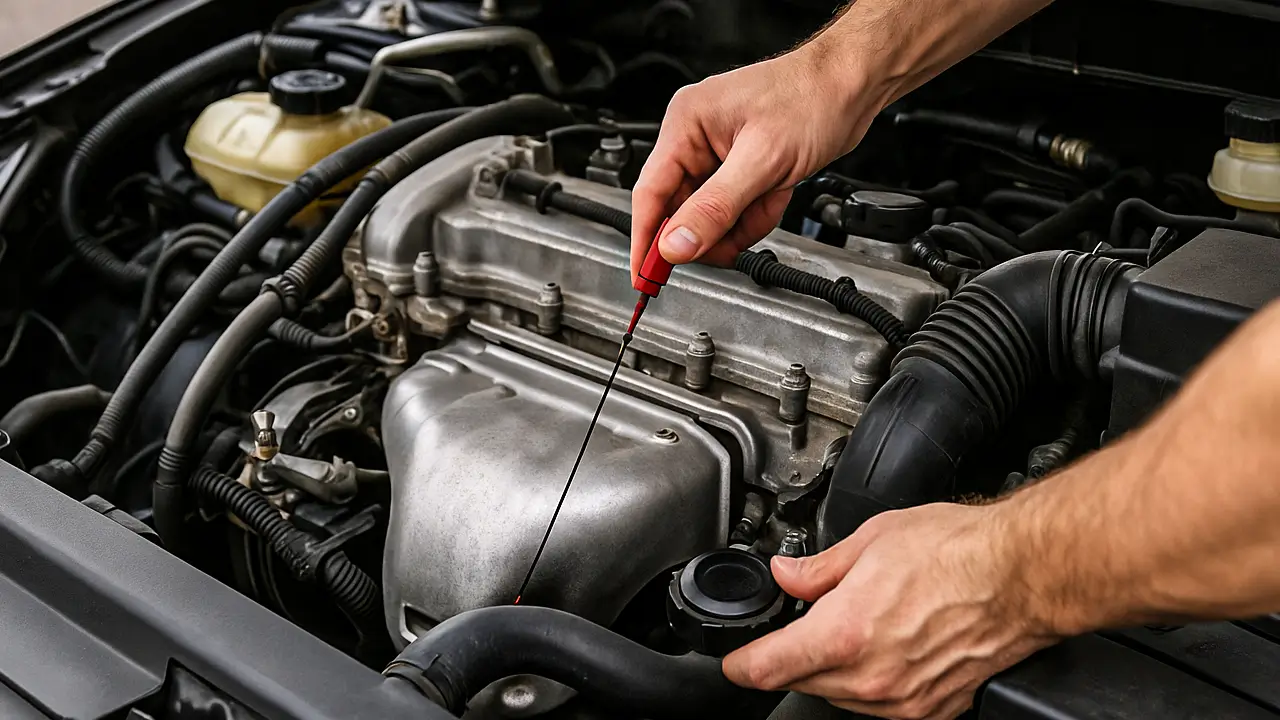The longevity and dependability of your car are dependent on its engine. Frequent maintenance maximizes overall performance, improves fuel efficiency, and averts expensive problems. To keep your vehicle operating smoothly for many years to come, follow these crucial engine maintenance guidelines:
Engine Maintenance Tips for Long-Term Performance
Regular Oil Changes
Because it keeps its parts lubricated and stops excessive wear, oil is the lifeblood of your engine. Follow the suggested oil change intervals from the manufacturer, which vary based on the kind of oil used and are typically between 3,000 and 7,500 miles. To get the most performance and longevity out of your engine, use premium synthetic or conventional oil that is appropriate for its kind.
Check and Replace Air Filters
The right amount of air is supplied to your engine for combustion when the air filter is clean. Decreased power, decreased fuel efficiency, and elevated emissions can result from a blocked air filter. As directed by your car’s handbook, check and change your air filter every 12,000 to 15,000 miles.
Monitor Coolant Levels and Condition
Your engine can sustain damage if it overheats, which is avoided by the cooling system. Check coolant levels frequently and make sure the radiator and lines are leak-free. According to the manufacturer’s recommendations, change the coolant every 30,000 to 50,000 kilometers.
Inspect and Replace Spark Plugs
Because they ignite the air-fuel mixture, spark plugs are essential to the combustion process. Slow acceleration, poor fuel economy, and misfires can all result from worn-out spark plugs. Examine them frequently, and depending on the kind of spark plug, replace them every 30,000 to 100,000 miles.
Check the Timing Belt and Serpentine Belt
The alternator, power steering pump, other accessories, timing belt, and serpentine belt also aid in synchronizing the engine’s components. The engine could sustain significant damage if these belts break. Replace them as needed, typically between 60,000 and 100,000 miles, by your car’s maintenance schedule.
Maintain the Fuel System
Effective combustion requires a clean fuel system. To clear carbon deposits from fuel injectors, use premium fuel and think about adding a fuel system cleanser every few thousand miles. To guarantee smooth fuel flow, check the fuel filter frequently and replace it every 20,000 to 40,000 kilometers.
Monitor and Maintain Battery Health
The starting performance of your engine may be impacted by a weak or damaged battery. Examine the battery terminals for corrosion and do any necessary cleaning. Make sure the battery is firmly placed, and check its voltage regularly. Depending on its condition, replace the battery every three to five years.
Keep an Eye on Warning Lights
Dashboard warning lights by onboard diagnostics in modern cars to notify you of any problems. Never disregard warnings about temperature, oil pressure, or check engine lights. You can avoid engine damage by promptly identifying and resolving these warnings.
Inspect and Replace Engine Mounts
Engine mounts mitigate vibrations and fasten the engine to the vehicle’s chassis. Faulty mounts can cause vibrations. Check them frequently for wear or cracks and replace them as needed.
Check the Exhaust System
Effective combustion gas expulsion is facilitated by a well-operating exhaust system. Check for leaks, rust, or strange sounds from the exhaust system. A malfunctioning exhaust can raise emissions and impair engine performance.
Regularly Replace Engine Fluids
According to the manufacturer’s instructions, other fluids such as power steering, brake, and transmission fluid must be inspected and updated in addition to engine oil and coolant. These fluids are essential for preserving engine performance and overall vehicle health.
Keep the Engine Clean
Around the engine bay, dirt and debris can build up, which could choke air intake vents and result in overheating. To avoid accumulation and guarantee ideal airflow, clean the engine bay regularly with a soft brush and degreaser.
Conclusion
You may improve the longevity, fuel economy, and performance of your car by adhering to these engine maintenance guidelines. In addition to avoiding expensive repairs, routine maintenance guarantees a comfortable and secure driving experience.
- Audi GT50 Concept: A Loud Reminder of Why Car Enthusiasts Fell in Love With Audi
- Nearly 30% of UK Drivers Believe Car Tax Should Be Based on Mileage — Survey
- Why Planes and Boats Escaped the Luxury Tax But Cars Didn’t
- Australia’s Headlight Confusion: Authorities Warn Drivers After Viral $250 Headlight Rule Goes Wild Online
- 2025 Hyundai Venue Facelift Launched in India – Full Details, Variants, and Price
